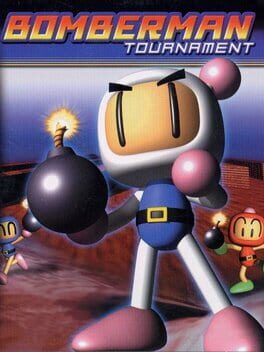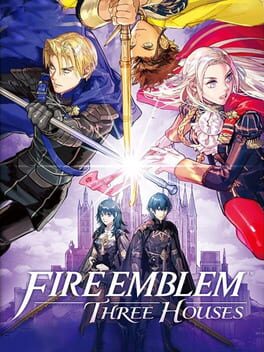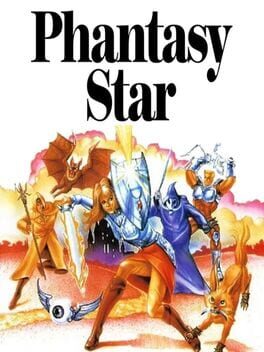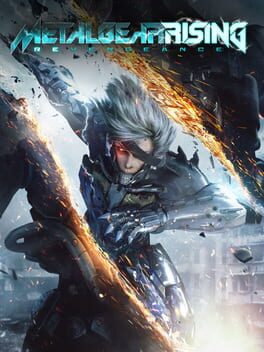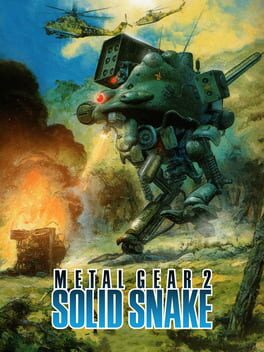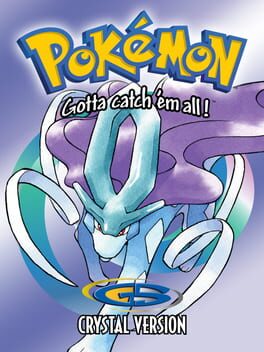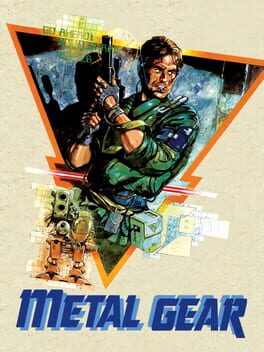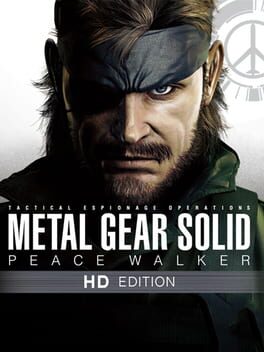inkear
Bio
Nothing here!
Badges

Noticed
Gained 3+ followers

Well Written
Gained 10+ likes on a single review

Gone Gold
Received 5+ likes on a review while featured on the front page

Liked
Gained 10+ total review likes
075
Total Games Played
015
Played in 2024
096
Games Backloggd
Recently Played See More
Recently Reviewed See More
I don't think Pokémon is for me, and that kinda bums me out.
To be fair, I may have set myself up for failure here a bit. I started Crystal pretty much immediately after finishing Blue for the first time in my life, and while playing two Pokémon games back-to-back may not sound strenuous if you’re a seasoned Pokéveteran, it was waaaaay too much for me. I burned out hard relatively early on, and only managed to finish the game out of a sense of spiteful obligation.
In a misguided effort to keep things fresh (and to ensure that I wasn’t falling into “genwunner” stereotypes) I resolved only to use “new” Pokémon. In other words, ones that hadn’t existed at the time of Red and Blue’s releases and were, to me at least, brand new. This was overall a great decision, as it introduced me to some new favorite creature designs (quagsire and shuckle were the two standouts. They each deserve spots in the Silly Little Guy Hall of Fame), but it also meant that my options for certain elemental types were severely limited, making some encounters more tedious than they probably needed to be.
With all of that said, and even in the exhausted, grumpy stupor in which I trudged through most of this game, I can’t help but marvel at the sheer scale and scope of it. Crystal is huge, and is full of staggeringly ambitious systems. Sure, the day/night cycle barely amounts to more than a subtle palette-shift of background assets, but there is something downright magical about having the clock in the game world match that of the real world. Exploring Kanto captures the uncanny atmosphere of returning to your hometown after a long time away, and coming to terms with the ways that it both is and isn’t the place you once knew. And I would be remiss not to mention the animated Pokémon sprites, which are gorgeous and convey an incredible amount of life and personality in an economical number of animation frames.
Pokémon Crystal is an incredible experience, and one that I wish I could love. Because it is so crammed full of things to do, you are almost forced to discover how you really feel about the Pokémon formula as a whole, and unfortunately for me, I discovered that I don’t really have much of a taste for it. But if you do, then rejoice, because what you have before you is nothing less than a feast.
To be fair, I may have set myself up for failure here a bit. I started Crystal pretty much immediately after finishing Blue for the first time in my life, and while playing two Pokémon games back-to-back may not sound strenuous if you’re a seasoned Pokéveteran, it was waaaaay too much for me. I burned out hard relatively early on, and only managed to finish the game out of a sense of spiteful obligation.
In a misguided effort to keep things fresh (and to ensure that I wasn’t falling into “genwunner” stereotypes) I resolved only to use “new” Pokémon. In other words, ones that hadn’t existed at the time of Red and Blue’s releases and were, to me at least, brand new. This was overall a great decision, as it introduced me to some new favorite creature designs (quagsire and shuckle were the two standouts. They each deserve spots in the Silly Little Guy Hall of Fame), but it also meant that my options for certain elemental types were severely limited, making some encounters more tedious than they probably needed to be.
With all of that said, and even in the exhausted, grumpy stupor in which I trudged through most of this game, I can’t help but marvel at the sheer scale and scope of it. Crystal is huge, and is full of staggeringly ambitious systems. Sure, the day/night cycle barely amounts to more than a subtle palette-shift of background assets, but there is something downright magical about having the clock in the game world match that of the real world. Exploring Kanto captures the uncanny atmosphere of returning to your hometown after a long time away, and coming to terms with the ways that it both is and isn’t the place you once knew. And I would be remiss not to mention the animated Pokémon sprites, which are gorgeous and convey an incredible amount of life and personality in an economical number of animation frames.
Pokémon Crystal is an incredible experience, and one that I wish I could love. Because it is so crammed full of things to do, you are almost forced to discover how you really feel about the Pokémon formula as a whole, and unfortunately for me, I discovered that I don’t really have much of a taste for it. But if you do, then rejoice, because what you have before you is nothing less than a feast.
I started playing Metal Gear with Solid on the PS1, and worked my way through the franchise from there, roughly in release order. This means that, until now, I had completely missed the original work that kicked the franchise off! And let me tell you, after playing through dozens upon dozens of Tactical Espionage Operations in Peace Walker and The Phantom Pain, it felt so good to play through a tightly focused, narrowly scoped game!
Metal Gear is confident, atmospheric, and stylish. Though it appears on the surface to be a very punitive game where the slightest mistake can result in your carefully-laid espionage plans going up in smoke, it is actually quite forgiving. The exact mechanics of enemies noticing Snake versus ignoring him are somewhat imprecise, but more often that not this tips the scales in the player's favor rather than punishing them. There are numerous tricky sequences, but the game world is compact enough that the player is never sent back too far away from their objective. And when Metal Gear does get unfair, it is deployed deliberately, with tongue firmly in cheek, in order to play with player expectations or to get them to second-guess themselves.
Sometimes when recommending older games to folks who only engage with the contemporary gaming landscape, I find myself using phrases like "for it's time", or "once you get used to it." But honestly, I don't even need to qualify my recommendation here. Metal Gear plays great! It's well worth your time.
Metal Gear is confident, atmospheric, and stylish. Though it appears on the surface to be a very punitive game where the slightest mistake can result in your carefully-laid espionage plans going up in smoke, it is actually quite forgiving. The exact mechanics of enemies noticing Snake versus ignoring him are somewhat imprecise, but more often that not this tips the scales in the player's favor rather than punishing them. There are numerous tricky sequences, but the game world is compact enough that the player is never sent back too far away from their objective. And when Metal Gear does get unfair, it is deployed deliberately, with tongue firmly in cheek, in order to play with player expectations or to get them to second-guess themselves.
Sometimes when recommending older games to folks who only engage with the contemporary gaming landscape, I find myself using phrases like "for it's time", or "once you get used to it." But honestly, I don't even need to qualify my recommendation here. Metal Gear plays great! It's well worth your time.
The Metal Gear games have been many things to me: ingenious, frustrating, poignant, juvenile, thought-provoking, hilarious, heartbreaking. But tedious? Never! …Until Peace Walker, that is.
Peace Walker is a fascinating exploration of the Metal Gear formula. It eschews the cinematic model of story-driven action present in every previous game, opting instead for a heavily-stratified short-format mission structure. Where in past games, you move naturalistically from objective to objective, learning new information, acquiring new items, and revealing new story beats along the way, in Peace Walker, capital G Gameplay and Capital S Story are mostly cordoned off from one another, with much of the dialogue being completely optional and accessed from a discreet menu. One the one hand, this shift in design philosophy makes complete sense. Peace Walker was originally developed as a PSP game, and I totally get not wanting players to get stuck in the middle of a lengthy cutscene when they need to get off a crowded bus. I’ve been that player. I’ve missed my stop because I was trying to find a save point. Shit sucks.
But. Because of this shift in design philosophy where gameplay and story feel so separate, what we’re left with feels less like one cohesive play experience, and more like a series of tiring scavenger hunt checklists, with the option to listen to the latest episode of a mostly-unrelated radio drama every so often. Which is a shame, because Peace Walker’s story is really fascinating! Though at times in danger of retreading old ground, it always finds new angles with which to examine its cast and themes. Metal Gear games have always found unique ways to blur the line between storytelling and gameplay, and having them feel so distant here makes both feel weaker than they probably actually are.
I wish I liked Peace Walker more than I do. It’s an intricate machine with a million little independently-moving pieces; I didn’t even mention the base-building meta-game that ties all your missions together, for example. If you really gel with the particular repetition that it offers, you could sink a lot of hours into Peace Walker and be happy. But ultimately, I come to Metal Gear for a Good Time, not for a Long Time, and Peace Walker seems more committed to providing the latter.
Peace Walker is a fascinating exploration of the Metal Gear formula. It eschews the cinematic model of story-driven action present in every previous game, opting instead for a heavily-stratified short-format mission structure. Where in past games, you move naturalistically from objective to objective, learning new information, acquiring new items, and revealing new story beats along the way, in Peace Walker, capital G Gameplay and Capital S Story are mostly cordoned off from one another, with much of the dialogue being completely optional and accessed from a discreet menu. One the one hand, this shift in design philosophy makes complete sense. Peace Walker was originally developed as a PSP game, and I totally get not wanting players to get stuck in the middle of a lengthy cutscene when they need to get off a crowded bus. I’ve been that player. I’ve missed my stop because I was trying to find a save point. Shit sucks.
But. Because of this shift in design philosophy where gameplay and story feel so separate, what we’re left with feels less like one cohesive play experience, and more like a series of tiring scavenger hunt checklists, with the option to listen to the latest episode of a mostly-unrelated radio drama every so often. Which is a shame, because Peace Walker’s story is really fascinating! Though at times in danger of retreading old ground, it always finds new angles with which to examine its cast and themes. Metal Gear games have always found unique ways to blur the line between storytelling and gameplay, and having them feel so distant here makes both feel weaker than they probably actually are.
I wish I liked Peace Walker more than I do. It’s an intricate machine with a million little independently-moving pieces; I didn’t even mention the base-building meta-game that ties all your missions together, for example. If you really gel with the particular repetition that it offers, you could sink a lot of hours into Peace Walker and be happy. But ultimately, I come to Metal Gear for a Good Time, not for a Long Time, and Peace Walker seems more committed to providing the latter.
